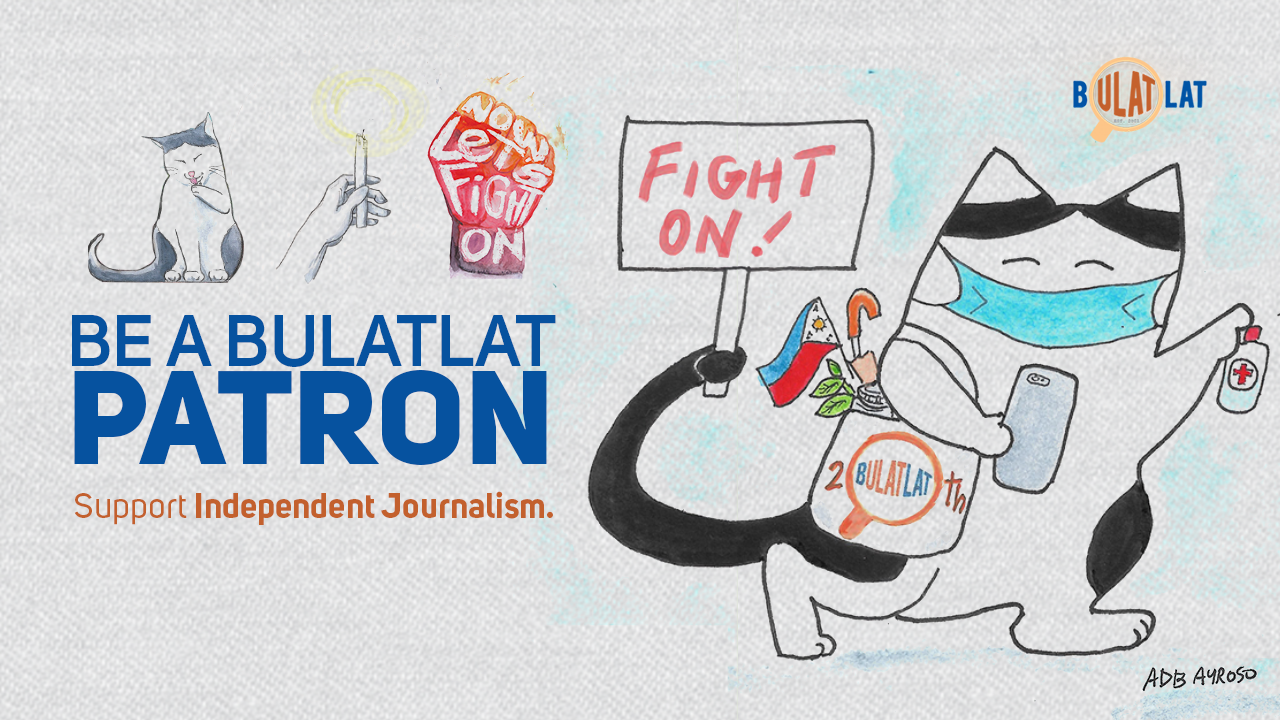
By JANESS ANN J. ELLAO
Bulatlat.com
MANILA — For Rogelio Rivera, 63, tilling the land has been his life.
“It was passed on to me by my late parents. And this is how I have earned a living for my family ever since,” he told Bulatlat.
In 2021, a real estate agent arrived in the more than 20-hectare agricultural land in Angadanan, Isabela where he and 19 other families have been tilling for the past 40 years. They were told that the landowner plans to sell it to a private company, not to the government through its agrarian reform program.
The landowner, Rivera was told, claimed that he was “too old” to wait for the government to process the agrarian reform claims and wanted to get the money as soon as possible.
“But that means we will lose our livelihood. This is how we have managed to get by every day,” he said.
Rivera was among the farmers who held a protest outside the gates of the Department of Agrarian Reform office along Elliptical Road in Quezon City. They carried placards that called for genuine agrarian reform as they chanted in between fiery speeches of their fellow farmers.
“I am hoping that they can help us,” he said as he pointed to DAR’s logo just outside the gate.
Unfulfilled promises
Rivera said that blue guards were deployed to keep them from entering the land that they were tilling.
“They would even be heard firing at night during their first nights there. No one was hurt. Maybe they only wanted to scare us away,” he said.
Like Rivera, Rosario Barrera of Hacienda Tinang is calling on the Philippine government to fulfill its promise to distribute the disputed estate.
Barrera, daughter of a land reform beneficiary in Hacienda Tinang, said their issue hogged the headlines when 83 farmers and supporters were arrested last year. “I was there. We were really surprised when they began arresting us. I was not among those arrested but I was held at gunpoint. Others lost their phones when they attempted to video record the arrests.”
Read: Land reform beneficiaries, supporters violently arrested for holding collective farming
Charges against the arrested Tinang farmers and their supporters remain pending before a Tarlac court after the police filed additional cases against them. These include obstruction of justice, resistance, and disobedience to a person in authority or the agent of such a person, and usurpation of real rights and charges of child exploitation and human trafficking.
The first two charges, malicious mischief, and illegal assembly were earlier junked by the Tarlac court.
Following the arrests, DAR promised to release the initial list of farmers who will get their land titles. This was after the Certificate of Land Ownership Award (CLOA) was issued to around 236 Tinang farmers way back in 1995.
DAR also promised to install the farmers in 45 days.
Read: Tarlac court junks cases against land reform beneficiaries and supporters
“It has been almost 30 years. We have waited long enough,” Barrera said.
Harassment, no meaningful support

Barrera said that instead of a land to till, they are confronting harassment from state forces.
In an interview with Bulatlat, she said that she is subjected to surveillance by soldiers belonging to the 7th Infantry Division of the Philippine Army. Other farmers in their communities are visited by soldiers late in the evening and are being offered livelihood programs.
Barrera said that last week, after returning from a sustainable agriculture training provided by a non-government agency, soldiers waited for her at her home to ask for her whereabouts. “They said they wanted a selfie with me.”
Meanwhile, in Palawan, Maria Elena Samillano, 65, a farmer from Yulo King Ranch, told Bulatlat that she is facing charges after a local agrarian reform official filed a grave coercion case against her. This, she said, was in relation to their visit to their community, and was told that they need to leave the disputed lands.
“How can I (force the agrarian reform officer to leave) when (he) was accompanied by at least seven soldiers and three police officers?” she asked.
Samillano said the government should focus on providing meaningful support as some of the CLOA holders in their community are forced to sell theirs to big estate developers because they have nothing to cultivate the land.
Onion farmer Mara, not her real name, 56, said they also suffer from the same lack of government support. When their onion farm in Mindoro was attacked by pests last year, she said that they only received an offer for a bank loan with low-interest rates.
But because onion farmers like her have suffered from as much as P200,000 ($3,670) deficit, and the bank only allowed them to loan P20,000 ($367), it was not enough to start anew.
Under such conditions, Mara said they were forced to borrow from traders who would, later on, buy their produce at the gate price that they imposed.
Danilo Ramos of Kilusang Magbubukid ng Pilipinas (KMP) said that the prevailing hunger and poverty among Filipino farmers are the “direct result of centuries-old landlessness.”
“Landlessness pushes rural peoples who already comprise almost 80 percent of the world’s poor into greater destitution,” he said, adding that transforming agriculture and food systems needs “a strong people’s movement that will assert to end corporate monopoly over agricultural lands, waters, and other natural resources.”
For her part, Barrera of Hacienda Tinang said that farmers cultivate some two hectares of the disputed estate. The produce, she said, is used to sustain the needs of their camp where protesting farmers and supporters gather. “We are not doing anything wrong. If we will not help one another, who will? Those we consider evil are those who have the power to do what is right but are not doing so.” (RTS, DAA) ![]()


